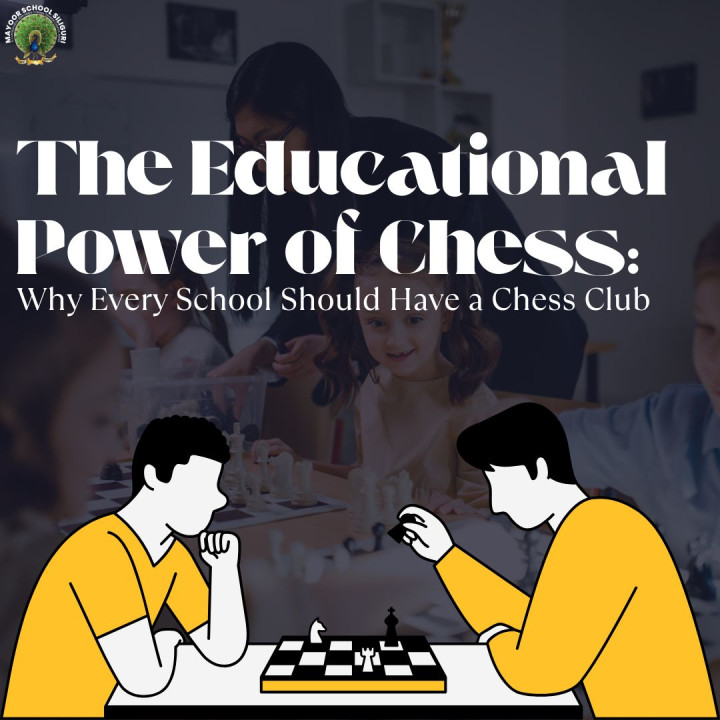
“Chess is the gymnasium of the mind,” wrote Blaise Pascal and frankly, he wasn’t exaggerating. In an age of rapid distraction, attention deficits, and dopamine-driven devices, chess offers something quietly radical: deep thinking. It’s not just a game, it’s a battlefield of intellect, a meditation on consequence, and, yes, a dazzling educational tool that schools would be foolish to ignore.
Let’s be clear: we’re not talking about an extracurricular for the gifted few in tweed blazers quoting The Queen’s Gambit. Chess is universal. It transcends language, socioeconomic status, and grade level. When an 8-year-old stares down a 14-year-old across the board, no one cares about their GPA. As Garry Kasparov said, “Chess helps you to concentrate, improve your logic. It teaches you to play by the rules and take responsibility for your actions.”
What subject teaches all that in one sitting?
Imagine a classroom where every lesson is a story of strategy, patience, risk, and reward. That’s a chess club.
As Benjamin Franklin wrote in his 1750 essay The Morals of Chess, “Chess is not merely an idle amusement.” It’s a tool for sharpening foresight, cultivating caution, and instilling perseverance. In his words: “It is so interesting in itself, as not to need the view of gain to induce engaging in it.”
Today, that’s truer than ever. Studies show that students who engage in chess demonstrate improved performance in math, reading comprehension, and problem-solving. Why? Because chess mimics the cognitive functions schools desperately try to teach — only it does it without a worksheet.
Chess teaches something that most curricula tiptoe around: losing. A lot.
There’s no hiding in a chess game. Every blunder is yours. Every victory is earned. As Josh Waitzkin, the subject of Searching for Bobby Fischer, said: “The moment we believe that success is determined by an ingrained level of ability as opposed to resilience and hard work, we will be brittle in the face of adversity.”
A chess club fosters resilience. It gives students permission to fail publicly, and rise stronger. It’s a microcosm of real life.
“In chess, knowledge is a very transient thing. It changes so fast that even a single new move turns the tables,” says Viswanathan Anand, former World Champion. That’s not just true on the board, it’s a metaphor for life. Chess builds working memory, pattern recognition, and adaptability, not by lecture, but by repetition and experience.
It’s STEM disguised as play. And what’s more powerful than learning when you don’t even realize you’re learning?
One of the most elegant things about chess? It’s egalitarian. The board is a great equalizer. When students play, labels fall away. The king and queen don’t care about race, gender, social background, or if you’re on free lunch.
As Judit Polgar, the strongest female chess player in history, said: “Chess is a miniature version of life. To be successful, you need to be disciplined, assess resources, consider responsible choices, and adjust when circumstances change.”
If that doesn’t sound like the mission of education, what does?
A chess club is not just a place to play; it’s a culture incubator. It becomes a hub for mentorship, a safe space for strategic minds, and a launchpad for student confidence.
The ROI is laughably high: a few boards, some dedicated time, and suddenly you’ve got students who think deeply, fail gracefully, and respect complexity. In a world obsessed with quick answers, that’s revolutionary.
So what are we waiting for?
Every school should have a chess club, not as a luxury, but as a pedagogical necessity. It’s not just about creating the next grandmaster. It’s about raising children who can plan ahead, recognize patterns, sit with discomfort, and think four moves into their future.
Or, as Marcel Duchamp once said: “While all artists are not chess players, all chess players are artists.”
At Mayoor School Siliguri, one of the best schools in Siliguri, we believe in nurturing mental artists, students who think deeply, learn strategically, and grow holistically. Let’s build a generation of thinkers, one move at a time.